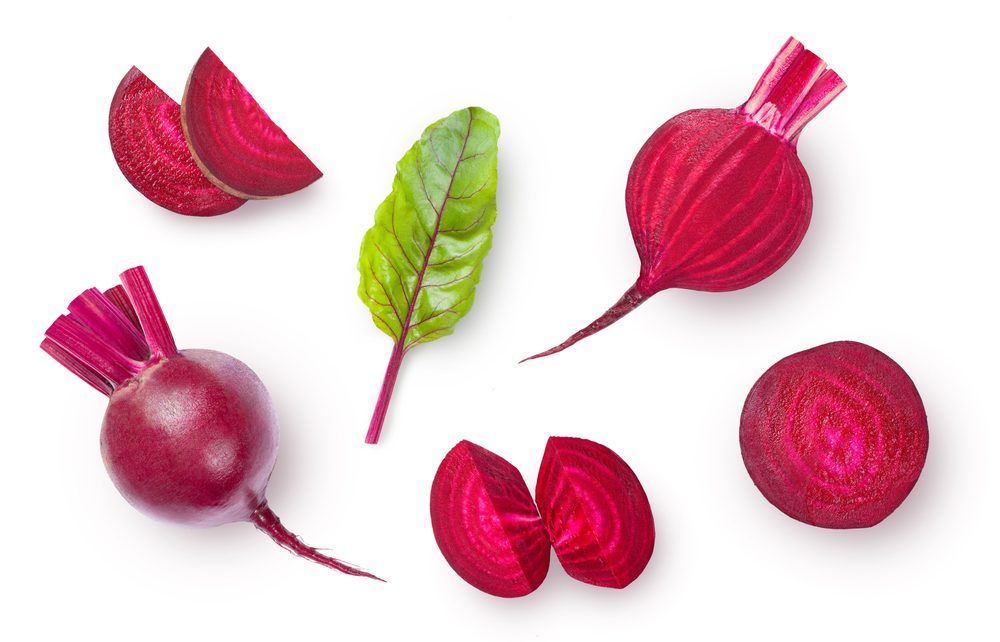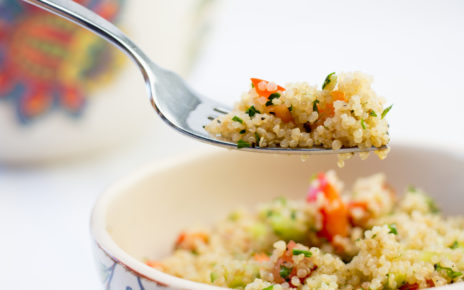Beets are a vibrant, nutrient-packed vegetable that many people love, but if you’re following a keto diet, you might be wondering whether beets are keto-friendly. This article dives deep into the world of beets and their place in a ketogenic lifestyle, offering a comprehensive look at their carb content, health benefits, and how they can fit into your diet plan. Whether you’re curious about eating beets on keto or seeking alternatives, this guide will provide clarity and practical tips, making it a must-read for anyone aiming to maintain ketosis while enjoying flavorful foods.
Article Outline
- What Are Beets, and Why Consider Them for a Keto Diet?
- How Many Carbs Are in Beets?
- Are Beets Keto-Friendly or Too High in Carbs?
- Can You Consume Beets on a Keto Diet Without Breaking Ketosis?
- What Are the Health Benefits of Beets for Keto Followers?
- How Do Beet Greens Compare to Beetroot on a Keto Diet?
- Are Pickled Beets a Good Option for a Keto Meal Plan?
- What Alternatives to Beets Work for a Ketogenic Diet?
- Should You Drink Beet Juice While Following a Keto Diet?
- How Can Beets Be Included in a Keto-Friendly Way?
1. What Are Beets, and Why Consider Them for a Keto Diet?
Beets, also known as beetroot, are a root vegetable celebrated for their deep red color and earthy flavor. Packed with essential vitamins and minerals like potassium, folate, and magnesium, beets are a nutrient powerhouse that tempts many to include them in their diet. For those following a keto diet, however, the question arises: can this vegetable fit into a low-carb lifestyle?
The ketogenic diet focuses on minimizing carbs to maintain ketosis, a metabolic state where the body burns fat for fuel. With beets containing moderate carbohydrates, their inclusion sparks debate. This article explores whether beets can be part of a keto diet, making it valuable for anyone curious about balancing nutrition with strict carb limits.
2. How Many Carbs Are in Beets?
Understanding the carb content of beets is crucial for anyone on a keto diet. According to the USDA, raw beets contain about 9.6 grams of carbs per 100 g, with 6.8 grams being net carbs after subtracting fiber. A cup of beets (about 136 g) offers roughly 13 grams of total carbs and 9.2 grams of net carbs. For cooked beets, the numbers are similar, though preparation can slightly alter the carb count.
For keto followers, daily carb intake is typically capped at 20-50 grams to stay in ketosis. This means a small serving of beets could take up a significant portion of your carb allowance, making portion size critical. Beets are high in fiber, which helps reduce net carbs, but their carbohydrate content still requires careful consideration.
3. Are Beets Keto-Friendly or Too High in Carbs?
The question of whether beets are keto-friendly hinges on their carb profile. With 6.8 grams of net carbs per 100 g, beets aren’t as low-carb as cruciferous vegetables like celery or Spinach, which often have fewer than 3 grams of net carbs per serving. For strict keto dieters, this makes beets a borderline choice.
However, beets aren’t entirely off-limits. Their nutrient density—offering vitamins like vitamin C and antioxidants—adds value beyond mere carbs. If you love beets and want to eat them on keto, moderation is key. A small portion, like half a cup, might fit into your keto meal plan without disrupting ketosis, depending on your daily carb limit.
4. Can You Consume Beets on a Keto Diet Without Breaking Ketosis?
Consuming beets on a keto diet is possible, but it requires strategy. Ketosis depends on keeping carb intake low enough to burn fat instead of glucose, and beets’ carb content makes overindulgence risky. For example, eating a full cup of beets could push you close to your daily carb limit, leaving little room for other foods.
To include beets without breaking ketosis, measure your portions carefully—stick to 50-75 grams (about 3-5 grams of net carbs). Pair them with high-fat, low-carb foods like olive oil or avocado to balance your macros. Beets can be included in a keto diet, but only if you’re diligent about tracking carbs and net carbs per serving.
5. What Are the Health Benefits of Beets for Keto Followers?
Beets are packed with essential nutrients that can enhance a keto diet. They’re an excellent source of potassium, which supports heart health and muscle function—key for those avoiding electrolyte imbalances on keto. Beets also contain folate, magnesium, and antioxidants that help reduce inflammation and lower the risk of chronic diseases like heart disease.
Additionally, beets are high in fiber, aiding digestion—a bonus for a diet often low in fibrous foods like fruits. While their carbs per 100 g are notable, the health benefits of beets make them worth considering in small amounts. For keto dieters, these perks add appeal, especially if you’re looking to diversify your vegetable intake.
6. How Do Beet Greens Compare to Beetroot on a Keto Diet?
Beet greens, the leafy tops of the beet plant, are often overlooked but offer a keto-friendly alternative to beetroot. With only about 4 grams of carbs per 100 g (and 1-2 grams of net carbs), beet greens rival low-carb veggies like Spinach. They’re also rich in vitamin K, vitamin C, and magnesium, making them a nutrient-dense choice.
Unlike beetroot, which has a higher carb count, beet greens fit seamlessly into a ketogenic diet. You can sauté them in butter or blend them into a keto-friendly smoothie. For those who enjoy beets and want a lower-carb option, beet greens are a fantastic way to enjoy the plant’s benefits without the carb load.
7. Are Pickled Beets a Good Option for a Keto Meal Plan?
Pickled beets are a tangy twist on the vegetable, but their keto-friendliness depends on preparation. A typical pickle recipe adds no extra carbs if made with vinegar and spices, keeping the net carbs per 100 g around 6-7 grams. However, store-bought versions may include sugar, spiking the carb content significantly.
For a keto meal plan, homemade pickled beets are ideal—control the ingredients and avoid added sugars. A small serving (like 50 grams) can add flavor to your diet without derailing ketosis. Beets in this form are a great addition if you’re careful about portion size and ingredients.
8. What Alternatives to Beets Work for a Ketogenic Diet?
If beets’ carb content feels too high, plenty of keto-friendly alternatives exist. Celery root, with about 7 grams of carbs per 100 g (and 5 grams of net carbs), offers a similar earthy taste with fewer carbs. Cruciferous vegetables like cauliflower or broccoli, both under 5 grams of net carbs per 100 g, are also excellent substitutes.
These alternatives provide vitamins, minerals, and fiber without risking ketosis. For instance, roasted cauliflower can mimic the texture of roasted beets while keeping your carb intake low. If you’re following a keto diet and wondering about variety, these options ensure you don’t miss out on flavor or nutrition.
9. Should You Drink Beet Juice While Following a Keto Diet?
Beet juice is a concentrated form of beetroot, and its carb count reflects that. A 100 mL serving of beetroot juice contains about 10 grams of carbs, with 9 grams being net carbs—higher than whole beets due to reduced fiber. For keto dieters, this makes beet juice a risky choice, as even a small glass could exceed your daily carb limit.
While beet juice offers antioxidants and nitrates that support heart health, it’s not practical for a keto plan. If you’re set on it, consider beetroot powder diluted in water, which can lower the carb impact per serving. Generally, though, keto followers should avoid beets in liquid form to maintain ketosis.
10. How Can Beets Be Included in a Keto-Friendly Way?
Beets can be part of a keto diet with careful planning. Opt for small portions—25-50 grams of raw beets (1.5-3 grams of net carbs)—and integrate them into high-fat meals to balance macros. For example, toss roasted beets with olive oil and pair them with a fatty protein like salmon.
Another option is beetroot powder, which delivers flavor and nutrients in tiny, low-carb doses (about 1 gram of carbs per teaspoon). Beets are a great addition when used sparingly, allowing you to enjoy their taste and benefits without compromising your ketogenic goals. The key is moderation and pairing with keto-friendly foods.
Summary: Key Takeaways About Beets and the Keto Diet
Moderation is Key: Include beets sparingly in a keto meal plan to enjoy their benefits without breaking ketosis.
Carb Content: Beets have 6.8 grams of net carbs per 100 g, making them a moderate-carb vegetable that requires portion control on a keto diet.
Keto-Friendliness: Beets aren’t inherently keto-friendly but can fit in small amounts (e.g., 50 grams) if you track net carbs carefully.
Nutrient Boost: Beets offer potassium, folate, and antioxidants, supporting heart health and inflammation reduction—valuable for keto dieters.
Beet Greens: A low-carb alternative (1-2 grams of net carbs per 100 g), perfect for ketogenic meals.
Preparation Matters: Opt for homemade pickled beets or beetroot powder to minimize carbs; avoid beet juice due to its high carb concentration.
Alternatives: Celery root and cruciferous veggies like cauliflower are lower-carb substitutes for beets.



